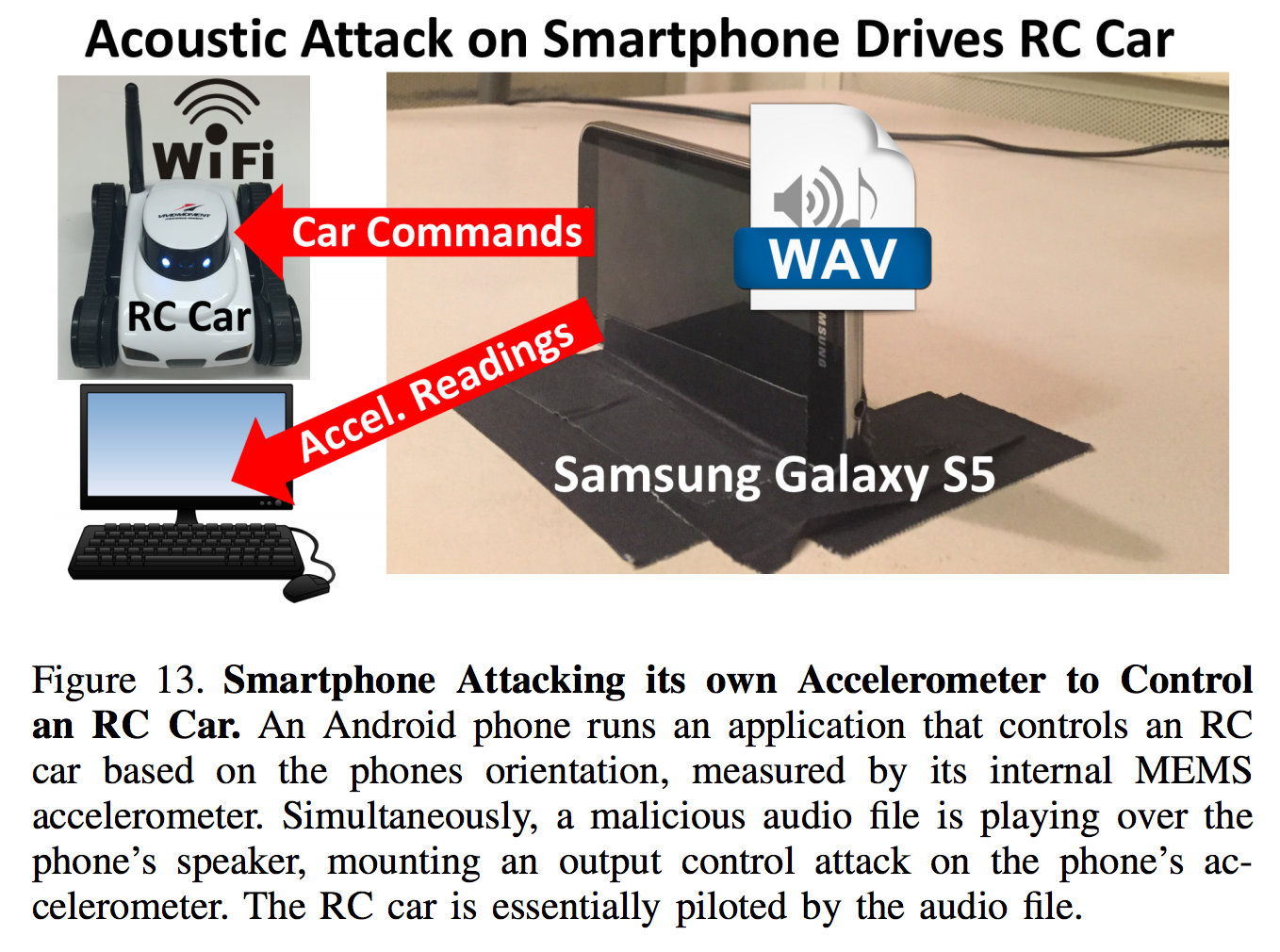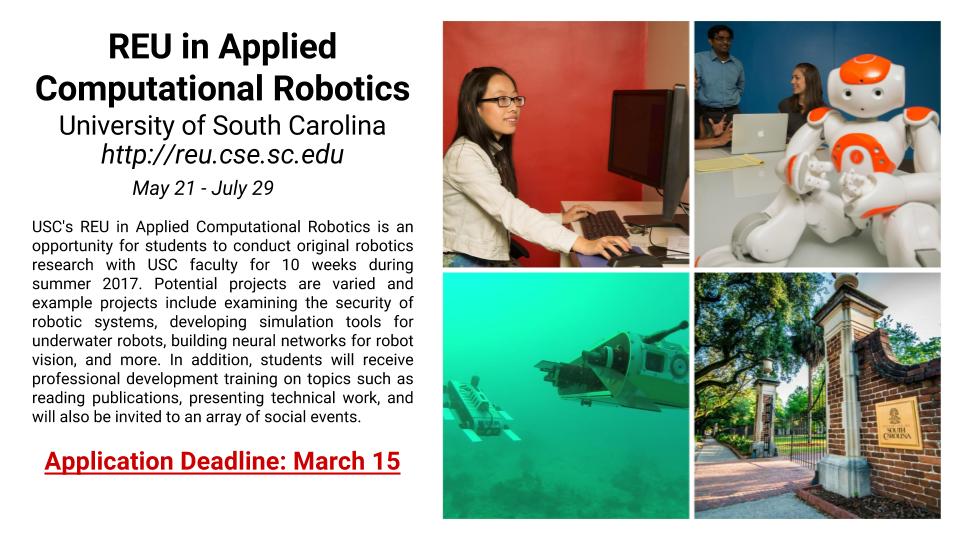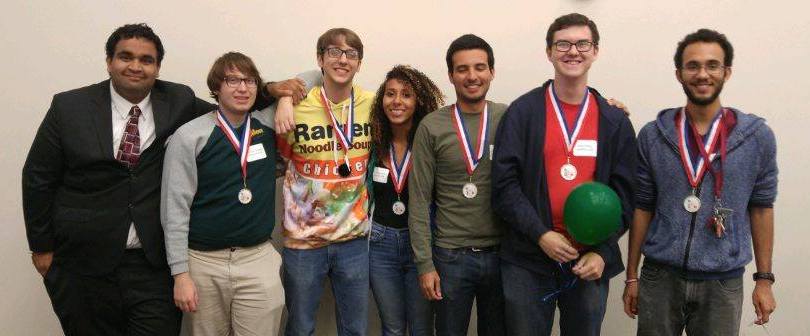Magellan Award Winners
We congratulate the following undergraduate students who have received a USC Magellan award in the last year, they are Emma Drobina, Judson James, Abraham Khan, Liudas Panavas, Harrison Engoren, Noemi Glaeser, Caleb Kisby, Briana Luckey, Jonathan Senn, Charles Daniels, De'Aira Bryant, Bethany Janos, Molly Carlson. Their respective research topics are shown below. You can also view the full list of winners and instructions for applying.
The Summer-Fall 2017 winners are:
- Emma Drobina, Pay attention! Re-engaging 5th grade math students using an adaptive robot tutor.
- Judson James, Developing an App to Examine Young Children's Music Development through Serious Gaming
- Abraham Khan, The Computational Complexity of Enumerating the Linear Extensions of a Dimension Two Poset.
- Liudas Panavas, Part Criticality in Inventory Management
- Harrison Engoren, The Probability of Sudoku: The Bounds of the Cardinality of Minimal Fair Sudoku Puzzles
- Noemi Glaeser, Generating Geographic and Temporal Heat Maps of Aflatoxin Incidence using Regularized Linear Models
- Caleb Kisby, Exploring Non-finitely Based Finite Algebras
- Briana Luckey, Distributed Monitoring and Control of Photovoltaic Generation
- Jonathan Senn, Validating in vitro models for Aflatoxin production in maize using a new open database of field sample data
- Charles Daniels, Magellan Apprentice, Generalized Hough Transform on the Tegra X1 Embedded SOC Architecture
- De'Aira Bryant, Engaging Minorities in Computer Science via Online Game & Robot Hip-Hop Dance
- Bethany Janos, Monitoring Smoking Behavior through the use of Smartwatch Applications
- Molly Carlson, Enhancing Features of the Lone Woman Archive: An Interdisciplinary Approach




 We are proud to announce that
We are proud to announce that 

 We are happy to announce that two
We are happy to announce that two